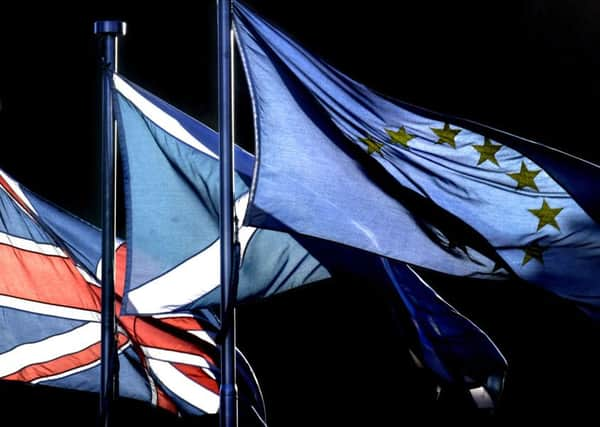Martin Flanagan: Brexit opportunities will take effort
This article contains affiliate links. We may earn a small commission on items purchased through this article, but that does not affect our editorial judgement.


The data from the engineering sector suggests unmistakably amid the uncertainty following the UK’s European referendum in June that orders and optimism are both ebbing.
We cannot afford this contagion to spread. Lloyds Banking Group sponsored the CBI dinner, and Andrew Bester, chief executive of the bank’s commercial banking arm, was set to tell the audience that Scotland has the global reach and influence, not to mention the brands.
Advertisement
Hide AdAdvertisement
Hide AdBut he believes Scottish businesses have to actively seek out export possibilities in Asia, the Americas and elsewhere, as the comfort blanket of Europe has become a bit torn and frayed. By their nature, trade agreements are complex and protracted (hello India). And it could be at least another two years before there is any sort of basic clarity.
Scottish exporters cannot let that time go to waste, but, at least in attitude terms, need to hit the ground running in the opaque post-Brexit climate. Bester was also due to address the vexed question of British productivity, our Achilles heel on the world economic stage in many ways.
He would largely be pushing at an open door with the CBI membership that productivity is the linchpin of the efficiency and profitability of businesses and the economic health of the country.
The nettle must be grasped to ensure the longevity of any resilience the UK economy is currently showing – unexpectedly to many – in the wake of Brexit.
It would not be a CBI function if the importance of infrastructure to business was not mentioned – the “economic arteries” as George Osborne once called them of road, rail, aviation, energy and IT – and the Lloyds director was expected to oblige in the clearest terms.
The thrust of his speech was expected to be that although we live in uncertain times there are opportunities as well as challenges to be grasped.
It is a truism, but valid, not just with the CBI big boys, but also smaller businesses.
